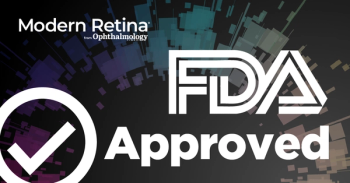
Aflibercept injection approved by FDA to treat preterm infants diagnosed with ROP
According to Regeneron, aflibercept injection is now approved to treat five retinal conditions caused by ocular angiogenesis.
Regeneron Pharmaceuticals today announced the FDA has approved aflibercept (EYLEA) Injection to treat preterm infants with retinopathy of prematurity (ROP).
According to a news release from the company, in the wake of this approval, aflibercept is now indicated to treat five retinal conditions caused by ocular angiogenesis.
George D. Yancopoulos, MD, PhD, president and chief scientific officer of Regeneron and a principal inventor of the injection, pointed out retinopathy of prematurity is a leading cause of childhood blindness worldwide.
“Until now, the only FDA-approved treatment in common use was laser photocoagulation, a complex and lengthy procedure that permanently ablates retina tissue and is stressful not only for infant patients but also the family navigating a delicate time after a preterm birth,” Yancopoulos said in the news release. “For the first time, physicians will now have an FDA approved medication in EYLEA to treat this heartbreaking disease in these smallest of patients. We thank the investigators and the many families who participated in the clinical trials.”
The company noted in its news release that each year in the U.S., between 1,100 to 1,500 infants develop ROP that is severe enough to require medical treatment. This rare eye disease often impacts infants who are born before 31 weeks of pregnancy have been completed or who weigh less than 3.3 pounds pounds at birth. As retinal blood vessels are often only fully developed once an infant is full-term (~9 months of pregnancy), these infants are at risk of developing retinal blood vessels that are abnormal (retinal neovascularization) potentially leading to retinal detachment and irreversible vision loss.
Mild cases of ROP may improve without treatment, but some cases require treatment to keep ROP from causing significant visual impairment and even blindness.
“With no existing FDA approved guidance for the treatment of retinopathy of prematurity with anti-VEGF therapies, there was a significant need for research to understand how best to treat the disease in a manner that puts patient safety first and preserves vision for a lifetime,” said Jeff Todd, CEO, Prevent Blindness. “Regeneron’s trials investigating EYLEA in retinopathy of prematurity have advanced our understanding of how to treat this disease and provided a needed evidence-based treatment option to potentially help preterm infants preserve their vision.”
Newsletter
Keep your retina practice on the forefront—subscribe for expert analysis and emerging trends in retinal disease management.




























